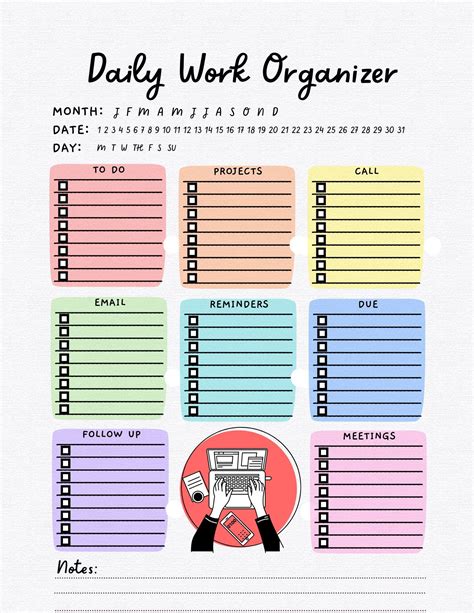7 Weekly Hourly To-Do Planning Tips for Productivity

In today’s fast-paced world, effective time management is crucial for maximizing productivity and achieving your goals. A well-structured weekly hourly to-do plan can be a game-changer, helping you stay organized, focused, and on track. Here’s a comprehensive guide to crafting a productive weekly schedule, complete with expert tips and practical strategies.
1. Assess Your Current Time Usage
Before diving into planning, it’s essential to understand how you’re currently spending your time. Use a time-tracking app or manually log your activities for a week to identify time-wasters and high-priority tasks.
2. Set Clear Goals and Priorities
Start by defining your weekly goals. Break them down into daily and hourly tasks, ensuring they align with your long-term objectives. Use the Eisenhower Matrix (urgent vs. important) to categorize tasks and focus on what truly matters.
- Identify Goals: Write down 3-5 key goals for the week.
- Categorize Tasks: Label tasks as urgent, important, both, or neither.
- Allocate Time: Assign specific hours to high-priority tasks.
3. Use Time Blocking for Structure
Time blocking involves dividing your day into specific blocks for different tasks. This technique minimizes multitasking and enhances focus. Allocate blocks for deep work, meetings, breaks, and personal time.
- Reduces procrastination
- Increases productivity
- Requires discipline
- Less flexibility for unexpected tasks
4. Incorporate Buffer Time
Unexpected tasks and interruptions are inevitable. Allocate 10-15% of your day as buffer time to handle these without derailing your schedule.
"Buffer time is not idle time; it’s strategic time that allows you to adapt to changes without stress." – Cal Newport, Author of *Deep Work*
5. Leverage Technology for Efficiency
Use productivity tools like Google Calendar, Trello, or Notion to organize your schedule. Automate reminders and recurring tasks to save time and stay on track.
| Tool | Best For |
|---|---|
| Google Calendar | Time blocking and scheduling |
| Trello | Task management and collaboration |
| Notion | All-in-one workspace for planning and notes |

6. Prioritize Self-Care and Breaks
Burnout is a productivity killer. Schedule regular breaks using the Pomodoro Technique (25 minutes of work followed by a 5-minute break) and dedicate time for exercise, meals, and relaxation.
7. Review and Adjust Weekly
At the end of each week, review your accomplishments and identify areas for improvement. Reflect on what worked, what didn’t, and adjust your plan for the following week.
Historical Context: Evolution of Time Management
The concept of time management dates back to the early 20th century, with pioneers like Frederick Winslow Taylor advocating for efficiency in the workplace. Over time, methodologies like GTD and time blocking have emerged, reflecting our growing need for structured productivity in an increasingly busy world.
Future Trends: AI and Automation
Emerging technologies like AI-powered scheduling assistants and predictive analytics are set to revolutionize time management. These tools will offer personalized recommendations, automate routine tasks, and optimize schedules in real-time.
How do I avoid overloading my schedule?
+Focus on high-priority tasks and use the 80/20 rule (Pareto Principle) to identify the 20% of tasks that yield 80% of results. Leave buffer time for unexpected tasks.
What’s the best way to handle distractions?
+Designate focused work periods and turn off notifications. Use apps like Focus@Will or Freedom to create a distraction-free environment.
How often should I update my to-do list?
+Update your list daily or at the end of each workday to reflect completed tasks and new priorities.
Can I use the same template every week?
+While consistency is helpful, adjust your template weekly based on changing priorities and lessons learned.
How do I stay motivated to stick to my plan?
+Break tasks into smaller, manageable steps and celebrate small wins. Regularly remind yourself of your long-term goals.
By implementing these weekly hourly to-do planning tips, you’ll not only enhance your productivity but also create a more balanced and fulfilling routine. Remember, the key to success lies in consistency, adaptability, and a mindful approach to time management.

